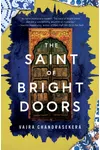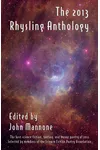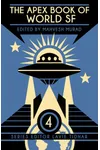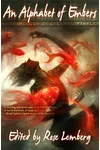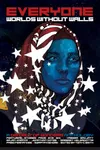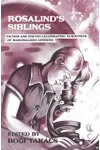Picture a Sri Lankan storyteller who weaves the mythic with the modern, crafting worlds that linger like a vivid dream—meet Vajra Chandrasekera! Born in Colombo, this fantasy author has taken the speculative fiction scene by storm with his debut novel, The Saint of Bright Doors, a 2023 New York Times Notable Book that snagged the prestigious Nebula, Crawford, Ignyte, and Locus awards. With a knack for blending the surreal with the everyday, Chandrasekera’s stories are a vibrant tapestry of South Asian culture, history, and imagination.
From short stories to novels, his work challenges conventions and invites readers into uncharted realms. Whether you’re a fantasy aficionado or just love a good tale, Chandrasekera’s unique voice is one you won’t forget.
The Making of Vajra Chandrasekera
Born on August 17, 1979, in Colombo, Sri Lanka, Vajra Chandrasekera grew up surrounded by the rich cultural and political tapestry of his homeland. His father, a novelist and civil servant, encouraged his literary ambitions but urged a practical career path. As a teen, Chandrasekera dabbled in writing, publishing his first short story at twelve in a local newspaper. His early career took a cyberpunk twist—think assembling PCs from cast-off hardware while writing fake product reviews for a web 1.0 scam. By 2012, his speculative fiction career kicked off with the poem “Jörmungandr” in Ideomancer, setting the stage for his genre-defying work.
Vajra Chandrasekera’s Unforgettable Stories
Chandrasekera’s debut novel, The Saint of Bright Doors (2023), is a dazzling blend of urban fantasy and social commentary. Following Fetter, a young man trained to assassinate his sainted father, the story unfolds in the surreal city of Luriat, where mysterious “bright doors” hint at other worlds. Critics praise its exploration of generational trauma, religious extremism, and history’s biases, with prose that’s “layered with the dense, brilliant luminosity of an oil painting” (Premee Mohamed). The novel’s accolades include the Nebula Award and a Hugo nomination, marking Chandrasekera as a trailblazer.
His second novel, Rakesfall (2024), is even more ambitious, tracing two souls through reincarnations across time, from the Sri Lankan Civil War to a far-future apocalypse. Described as “hallucinatory” and a Nebula finalist, it’s a kaleidoscopic epic that tackles power, rebellion, and enduring bonds. Chandrasekera’s short stories, like “The Translator, at Low Tide” (Sturgeon Award nominee), showcase his versatility, blending dystopian and fantastical elements. His style—visceral, poetic, and deeply South Asian—defies Western fantasy tropes, creating worlds that feel both mythic and achingly real.
Why Vajra Chandrasekera Matters
Chandrasekera’s impact goes beyond his stories. As a Sri Lankan author, he brings a fresh perspective to speculative fiction, weaving in themes of colonialism, caste, and nationalism that resonate globally. His work challenges readers to confront uncomfortable truths while reveling in imaginative worlds. Beyond writing, he’s edited for Strange Horizons, judged awards, and advocated for marginalized voices, amplifying South Asian speculative fiction. His novels, part of a recent surge in Sri Lankan anglophone SF, are redefining the genre’s boundaries.
- Born: August 17, 1979, Colombo, Sri Lanka
- Key Works: The Saint of Bright Doors (2023), Rakesfall (2024), “The Translator, at Low Tide” (2020)
- Awards: Nebula, Crawford, Ignyte, Locus (First Novel)
- Notable Role: Fiction editor at Strange Horizons (2016–2022)
Ready to dive into a world where myths meet modernity? Snag The Saint of Bright Doors and lose yourself in Vajra Chandrasekera’s mesmerizing fantasy!
